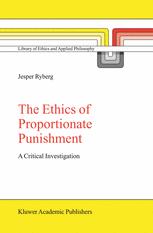

Most ebook files are in PDF format, so you can easily read them using various software such as Foxit Reader or directly on the Google Chrome browser.
Some ebook files are released by publishers in other formats such as .awz, .mobi, .epub, .fb2, etc. You may need to install specific software to read these formats on mobile/PC, such as Calibre.
Please read the tutorial at this link: https://ebookbell.com/faq
We offer FREE conversion to the popular formats you request; however, this may take some time. Therefore, right after payment, please email us, and we will try to provide the service as quickly as possible.
For some exceptional file formats or broken links (if any), please refrain from opening any disputes. Instead, email us first, and we will try to assist within a maximum of 6 hours.
EbookBell Team

5.0
20 reviewsThe philosophical discussion of state punishment is well on in years. In contrast with a large number of ethical problems which are concerned with right and wrong in relation to a narrowly specified area of human life and practice and which hav- at least since the early 70’s - been regarded as a legitimate part of philosophical thinking constituting the area of applied ethics, reflections on punishment can be traced much further back in the history of western philosophy. This is not surprising. That the stately mandated infliction of death, suffering, or deprivation on citizens should be met with hesitation - from which ethical reflections may depar- seems obvious. Such a practice certainly calls for some persuasive justification. It is therefore natural that reflective minds have for a long time devoted attention to punishment and that the question of how a penal system can be justified has constituted the central question in philosophical discussion. Though it would certainly be an exaggeration to claim that the justification question is the only aspect of punishment with which philosophers have been concerned, there has in most periods been a clear tendency to regard this as the cardinal issue. Comparatively much less attention has been devoted to the more precise questions of how, and how much, criminals should be punished for their respective wrong-doings. This may, of course, be due to several reasons.